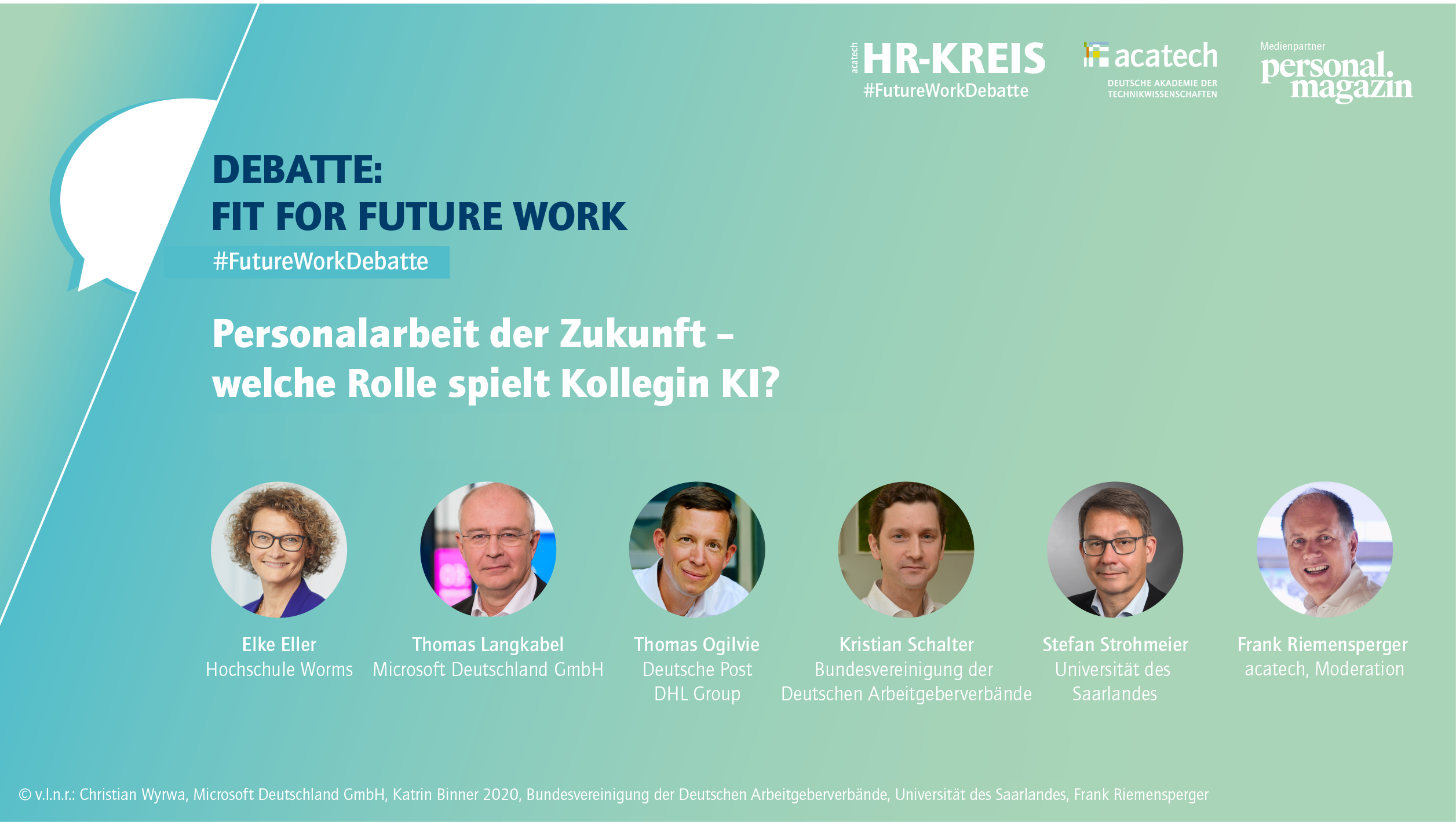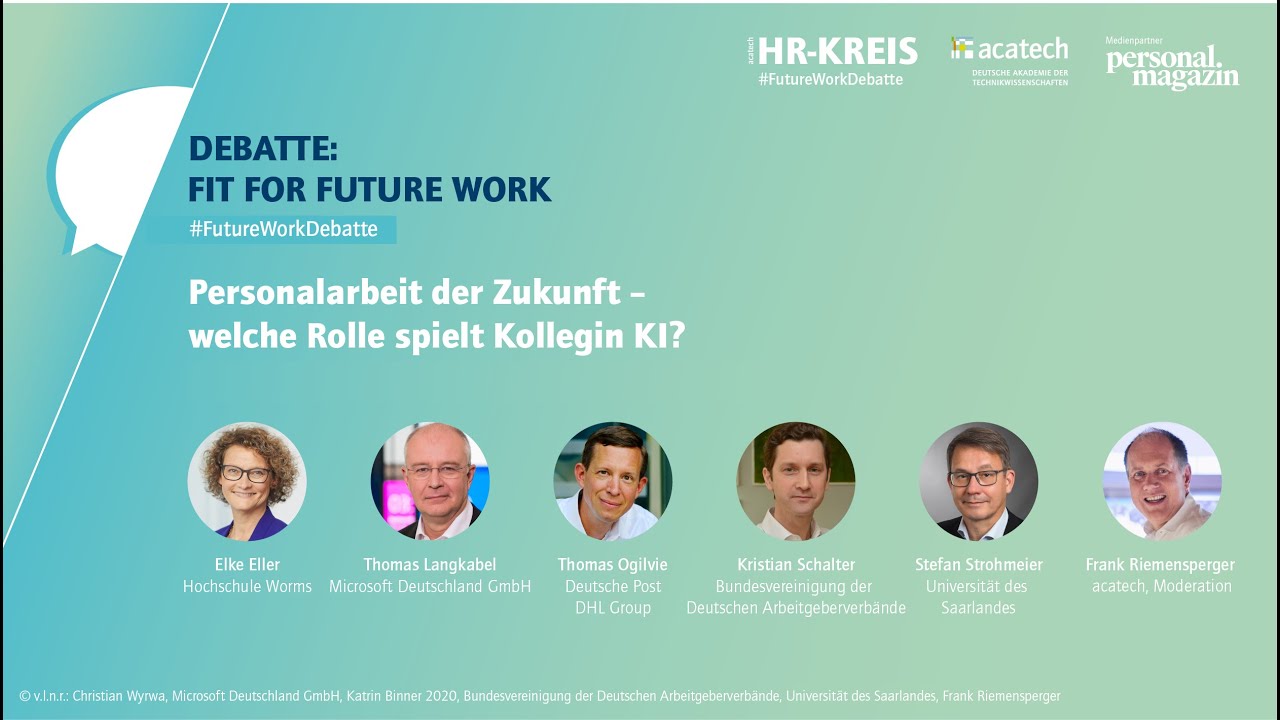#FutureWorkDebatte: How will AI affect HR?

Munich, 24 March 2023
AI applications such as ChatGPT are changing the area of HR. The most recent #FutureWorkDebatte on 16 March discussed what is in store for companies, what the potential applications for AI are and why the timing of the surge in AI is perfect. The series of virtual debates is organised by acatech’s Human Resources Working Group and has been held at regular intervals since summer 2022.
The AI application ChatGPT has taken off in a big way. The chatbot, which can be prompted to write lengthy scientific papers in a flash, was tried out by several hundred million users worldwide within days of its release – the highest ever rate of adoption for an internet service.
At the very start of the #FutureWorkDebatte on 16 March, moderator and acatech Executive Board member Frank Riemensperger highlighted the disruptive nature of the software. The spread of ChatGPT will continue apace because it is freely available and can be used without much prior knowledge. For this reason, a quick response to the innovation is required – and the area of HR is no different. Banning ChatGPT, as has been discussed, for example, in German educational institutions in recent weeks is not an option, he said. At the same time, we shouldn’t let ourselves be carried away by the technology.
On one point the participants in the #FutureWorkDebatte were certain: AI applications will increase efficiency
ChatGPT will increase efficiency in the HR sphere, predicted Elke Eller, Professor of Strategic HR Management at Worms University of Applied Sciences. For example, the bot could perform certain standard elements of the recruitment process. However, she added, “The final decision should rest with HR professionals.”
Human Resources Working Group member Thomas Ogilvie, Member of the Board of Management with responsibility for Human Resources of Deutsche Post DHL Group went into some useful applications for the chatbot in HR. However, he also pointed out that while it was possible that ChatGPT could consolidate knowledge, decision-making will remain the preserve of humans.
That said, Microsoft Manager Thomas Langkabel predicted that AI will soon assist with decisions in every occupation and moreover “significantly change how we work across the board.” In consequence, this also means that AI applications like ChatGPT will do work that humans currently do. All agreed that specific professional development and retraining programmes are necessary to address this. Such professional development must teach a specific mindset when dealing with artificial intelligence, said Stefan Strohmeier, Professor of Management Information Systems at Saarland University.
So AI applications like ChatGPT would change existing job descriptions, but not put humans out of work in droves; on this there was also consensus among the participants. In fact, said Kristian Schalter of the Confederation of German Employers’ Associations, the surge in AI has come at just the right time: given the current skills shortage, the potential for automation and digitalisation associated with AI presents a major opportunity.
Recording of the event (in German)
About the debate series Fit for Future Work
#FutureWorkDebatte




